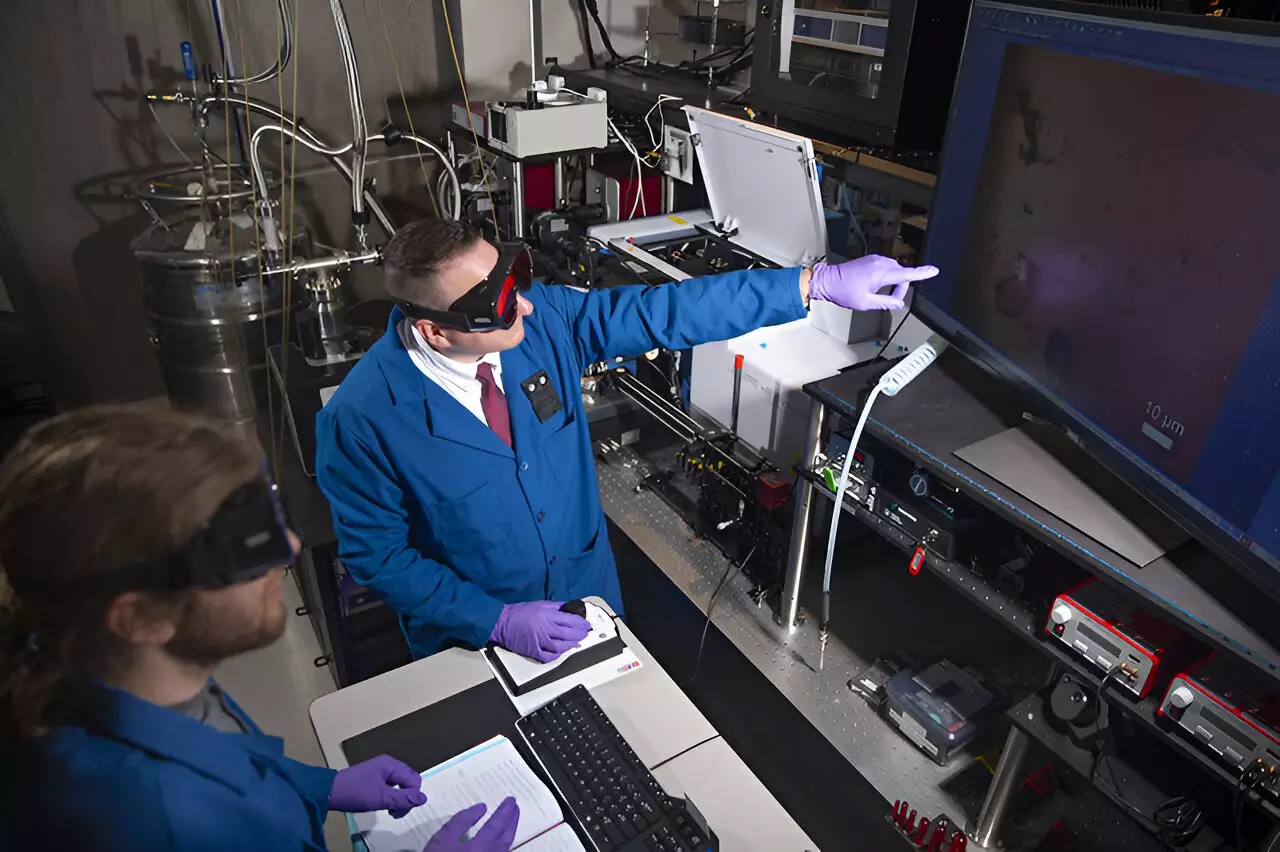In a recent study published in Nature Communications, researchers from Los Alamos National Laboratory have made significant progress in the field of quantum devices by investigating topological phases of matter. By utilizing a unique strain engineering approach, the research team successfully converted hafnium pentatelluride (HfTe5) into a strong topological insulator phase. This breakthrough has the potential to unlock the quantum potential of the material, making it suitable for a wide range of applications such as quantum optoelectronic devices, dark matter detectors, and quantum computers.
The team at the University of California, Irvine, was responsible for growing the HfTe5 crystals and applying strain engineering techniques. This involves applying mechanical force to the material at cryogenic temperatures (-457 degrees Fahrenheit) to induce desired changes in its properties. The samples were then sent to Los Alamos National Laboratory, where optical spectroscopy was used to examine the material at a sub-micron level. Additionally, angle-resolved photoemission spectroscopy was conducted at the University of Tennessee to gain insights into the effects of strain engineering on HfTe5.
The research team observed that the strain engineering process effectively transformed HfTe5 from a weak topological insulator to a strong topological insulator. This is evident from the significant increase in the material’s bulk electrical resistivity, which increased by more than three orders of magnitude. Additionally, the topological surface states of HfTe5 became the dominant pathway for electrical conduction. These properties are highly desirable for the development of quantum devices.
The successful transformation of HfTe5 opens up numerous possibilities for the development of innovative quantum devices. With its unique properties, HfTe5 can be utilized in the construction of quantum optoelectronic devices, which are instrumental in manipulating and controlling light at the quantum level. Furthermore, the material’s strong topological insulator phase makes it suitable for the creation of topologically protected devices, including quantum computers, which have the potential to revolutionize information processing.
The positive outcomes of the study also lay the foundation for further exploration of strain engineering in other quantum materials. By investigating topological phase transitions in van der Waals materials and heterostructures, researchers can gain a deeper understanding of their behavior and potentially unearth additional properties with practical applications. These lattice-like structures possess a strong in-plane bond and a weak out-of-plane bond, reminiscent of the pages in a book, making them ideal candidates for future investigations.
Exploring Exotic Physics
The discovery of the topological property in HfTe5 opens up new possibilities for studying exotic physics phenomena. By subjecting the material to high magnetic fields, researchers can explore quantum anomalies and other unexplained instances of symmetry breaking in the field of physics. The Los Alamos National High Magnetic Field Laboratory is currently conducting experiments using ultra-high magnetic fields of up to 65 Tesla to further investigate the potential of HfTe5.
The research conducted by the team at Los Alamos National Laboratory has demonstrated the promising potential of topological phases of matter in advancing quantum devices. The successful conversion of HfTe5 from a weak to a strong topological insulator provides a solid foundation for the development of quantum optoelectronic devices and topologically protected devices. Moreover, the study opens up avenues for further exploration in the field of strain engineering and investigation into exotic physics phenomena. Through continued research and experimentation, the possibilities for utilizing topological phases of matter in quantum devices are boundless.


Leave a Reply